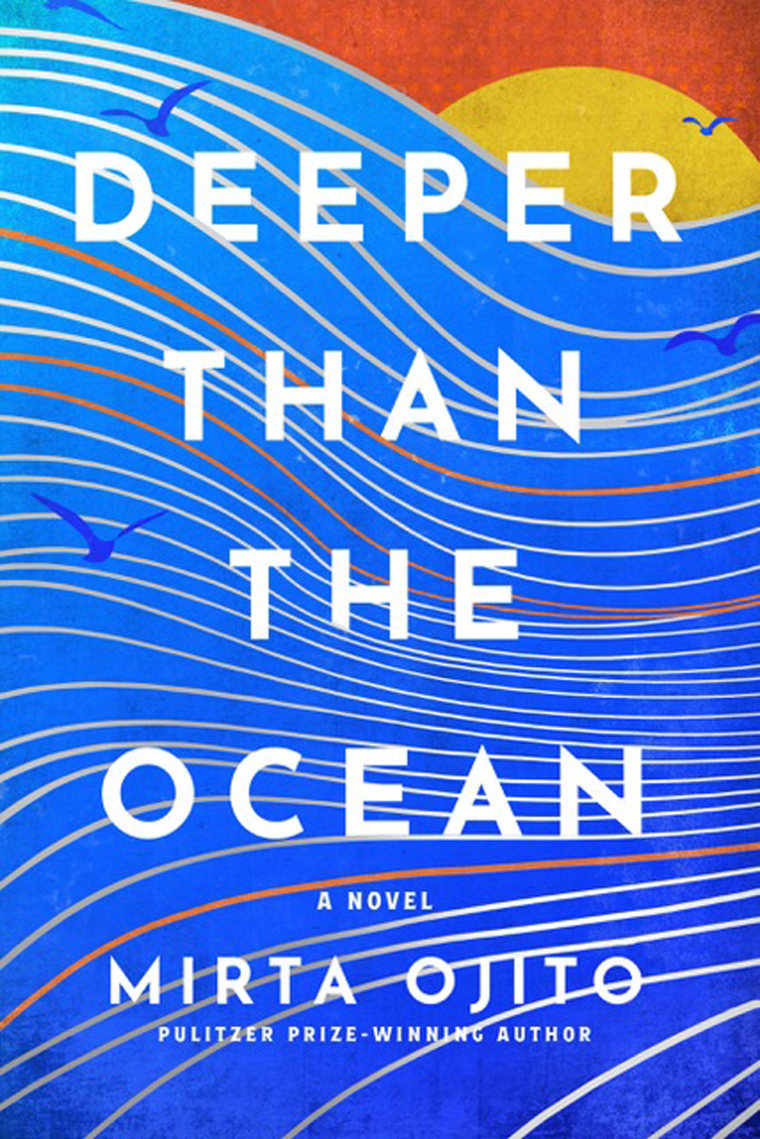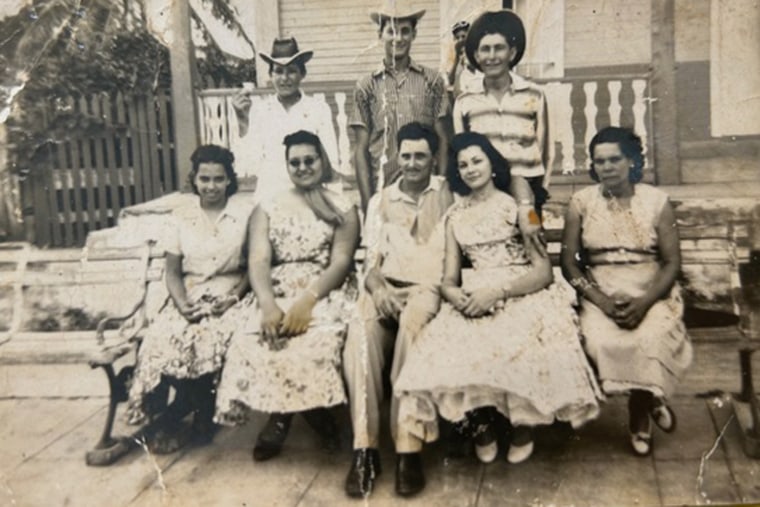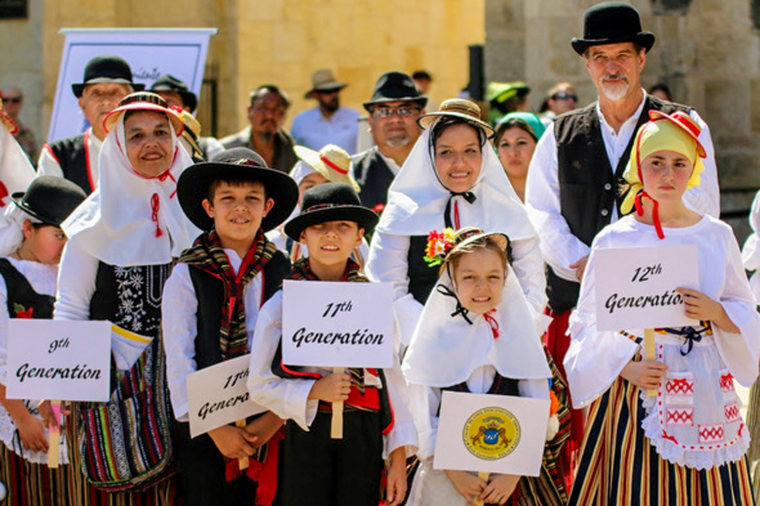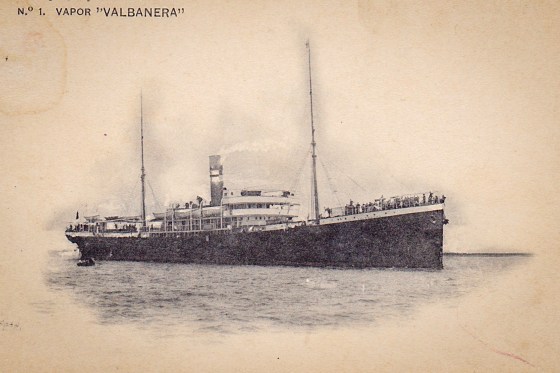When author and journalist Mirta Ojito set out to explore a chapter of forgotten history, she never imagined that she would discover part of her own family’s lost heritage.
Ojito had long been fascinated by the Valbanera, a Spanish steamship known as the “poor man’s Titanic” that sank near Key West, Florida, during a 1919 hurricane after making a voyage across the Atlantic from Spain’s Canary Islands. It’s the deadliest single shipwreck off the Florida Keys.
“I was blown away by this story, because it was a huge tragedy for Spain and also for the Americas,” Ojito said of the wreck that claimed the lives of nearly 500 people. “These were all poor immigrants coming to the Americas to have a better life.”
As Ojito was writing and researching the Valbanera’s sinking, she was having long conversations with her mother before she died in 2021.
Now, Ojito is out with her debut novel, “Deeper Than the Ocean,” which spans two continents, five generations and 100 years.
“This book is filled with the stories of my mother’s and my grandmother’s lives in Cuba and Spain,” Ojito said. But the Valbanera’s saga is central to her story.

Launched in 1906, the ship for years sailed a regular route between Spain and the Canary Islands and Puerto Rico, Cuba and the U.S. Gulf Coast, specifically New Orleans. The steamship was capable of carrying over 1,100 passengers and crew. But in September 1919, the ship could not withstand what was later estimated as a Category 4-level hurricane in the Florida Keys. The ship sank, and none of the bodies of the passengers and crew were ever recovered.
The Valbanera shipwreck made the front page of the Miami Herald and other newspapers, and Ernest Hemingway once wrote a short story about it. Yet unlike the sinking of the Titanic in 1912, where many wealthy and influential passengers lost their lives, the Valbanera tragedy did not capture the public’s imagination and soon seemed to be forgotten.
Currently senior director of news standards for Noticias Telemundo (Telemundo and NBC News are owned by NBCUniversal, a division of Comcast), Ojito, 61, is an acclaimed journalist who has won an Emmy Award and a shared Pulitzer Prize for her national reporting at The New York Times.
She was drawn to the Valbanera’s story in part because it resonated with her own story: Ojito first arrived in Key West as a teen when she and her family left communist Cuba, which she detailed in her 2006 nonfiction book, “Finding Mañana: A Memoir of a Cuban Exodus.”
Decades later, on a visit to Key West, “I had picked up a (Spanish-language) book about the Valbanera, and I thought, ‘How come I didn’t know about this?’” Ojito said.
The Valbanera’s wreckage still lies submerged off the Florida Keys. Recently, former NBC News correspondent Kerry Sanders dove down to the site for a segment on the Discovery Channel’s “Destination Dive.”
“I swam through the whole wreckage, through the hull, through the hole where the anchor chain would have been released,” Sanders said. “When you are down there, it is so quiet, so silent. You can’t help but wonder about the terror of the passengers aboard the ship, the rage of the wind forces, the people tossed overboard by the storm.”
A real-life plot twist many others may share
As she wrote “Deeper Than the Ocean,” Ojito made one of her main characters a Canary Islander, as that was the Valbanera’s last stop before setting off across the Atlantic. The Canary Islands are a small Spanish archipelago located off the western coast of Morocco, and Ojito did extensive research to paint a picture of early 20th-century life there.

The novel’s chapters alternate between the story of Mara Denis, a present-day journalist, and the story of her great-grandmother, Catalina, who leaves everything she loved in the Canary Islands after her father urges her to marry a man who’s made a life for himself in Cuba. In the novel, Mara eventually discovers her family’s story — and her great-grandmother’s long-held secrets.
But only after she finished writing her novel did Ojito encounter a real-life plot twist, in the form of a notification from the genealogy site Ancestry. Like many other people in the Americas, her family DNA had been traced back to a place she had never been but somehow felt that she knew intimately: the Canary Islands. “There is no doubt that this story has always lived inside me,” said Ojito, who eventually did visit the Canary Islands.
Just as the story of the Valbanera has faded away, so has awareness of how Canary Islanders have affected the history of Latin America and the United States. Many of their descendants may not know that they have a connection to the far-off islands.
But these ties are well-documented in history. In the early 18th century, Spain sent Canary Islanders to the New World to help populate what is now Texas. In 1731, sixteen Canary Island families founded the first civil government in San Antonio — and their descendants fought at the Alamo.
“We are doing everything we can to help keep the heritage alive, because some people with names like Rodriguez, Cabrera or Perez may not even realize they have a lineage connection to this specific part of Spain,” said Julia Lopez, president of the Canary Islands Descendants Association.

Canary Islanders in the Gulf Coast fought against the British in the American Revolution. Known as Isleños, (Islanders), Canary Islanders who came to Spanish-controlled Louisiana between 1778 and 1783 settled across the state, according to College of William and Mary assistant professor Thenesoya V. Martin De la Nuez.
Many Isleños changed their original Spanish surnames to French last names once Louisiana came under French control, De la Nuez explained, which led to some descendants likely losing touch with their roots.
“It’s a very forgotten and endangered community that has been historically stigmatized because they once spoke a Spanish dialect,” De la Nuez said. “Yet they have an incredible interconnection with the American Revolution, the birth of the U.S. and the history of Louisiana.”
De la Nuez, whose maternal grandmother had traveled aboard the Valbanera, said, “These people represent an amazing chapter in the common history of Spain and the U.S., the last living connection to Spanish colonial Louisiana.”
Around the years of the Valbanera shipwreck, millions of immigrants from the Canary Islands and Spain came to the Caribbean and Latin America, since there was a demand for labor.
For Ojito, writing about the Valbanera and threading family stories into her novel was a profound experience.
“When I finished, I kept thinking about how these were difficult, exhausting but also wonderful lives,” she said. “My novel is my way of honoring and somehow keeping alive my grandmother and her generation of women.”
“This is a story of a family torn by migration, an unimaginable tragedy, loss and secrets,” she added, “but ultimately redeemed by the power of love and the power of family bonds.”

